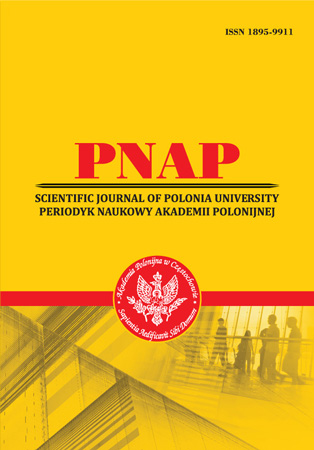ABOUT CAREER ORIENTATION OF MODERN STUDENTS: FOREIGN AND DOMESTIC APPROACHES
Abstract
The article considers the problem of career and career orientation of modern students in domestic and foreign scientific psychological and pedagogical literature. It is emphasized that the concepts of “career” and “competition” are etymologically related concepts. It is noted that a successful career involves a competitive personality. Three integral characteristics of a competitive personality are characterized: orientation, competence, flexibility. It is noted that the mental development of a cultured person occurs through the appropriation of social consciousness – social ideas, knowledge, language, ideals, norms, traditions, assessments, which are stored in the culture of the people and which in the transition to the internal plan form the psyche of a particular person. It is proved that in senior courses a professional identity is formed and the final decision is made whether to connect one's future destiny with the chosen profession or not. Based on the results of the theoretical analysis of career understanding issues, foreign and domestic researchers have identified the main approaches to career understanding: semantic, role, value, procedural, status, personal-professional, biographical, acmeological. It is emphasized that the process of formation of professionalism throughout the life of students is self-realization and the formation of its subjectivity. It is noted that the most popular foreign theory of professional development was the model of D. Super.
References
2. Zeer E.F. (1988). Psikhologicheskie osnovy professionalnogo stanovleniia lichnosti inzhenera-pedagoga. Dis. … d-ra psikhol. nauk [Psychological foundations of the professional formation of an engineer-pedagog personality. Dis. Doctor of Psychology]. Sverdlovsk. 356 p. (In Russian).
3. Ilhunova O.E. (2005). Dinamika stanovleniia stilei professional'noi deyatel'nosti na raznykh etapakh kar'ery gosudarstvennykh sluzhashchikh. Dis. kand. psikhol. nauk [Dynamics of the formation of professional activity styles at different stages of the public servants’ career. Dis. PhD in Psychology]. Moskva. 197 p. (In Russian).
4. Klimov E.A. (1996). Psikhologiia professionalizma [The psychology of professionalism]. Moskva: Znanie. 95 p. (In Russian).
5. Kondakov I.M., Sukharev A.V. (1989). Metodologicheskie osnovaniia zarubezhnykh teorii professional'nogo razvitiia [Methodological foundations of foreign theories of professional development]. Voprosy psikhologii [Psychology issues], no. 5. 158–164 pp. URL: http://www.voppsy.ru/issues/1989/895/895158.htm (Accessed: 13 July 2020). (In Russian).
6. Krichevskii R., Siniagin Iu. (2012). Menedzhment i samomenedzhment karery [Management and self-management of the career]. Munitsipalnaia sluzhba. Institut munitsipalnogo upravleniia [Municipal service. Institute of Municipal Management], no. 1. 89–97 pp. URL: https://rucont.ru/efd/220479 (Accessed: 10 July 2020). (In Russian).
7. Ladanov I.D. (1997). Psikhologiia upravleniia rynochnymi strukturami: Preobrazuiushchee liderstvo [Psychology of market structure management: Transformative Leadership]. M.: UTs “Perspektiva”, 288 p. (In Russian).
8. Markova A.K. (1996). Psikhologiia professionalizma [Psychology of professionalism]. M.: Nauka, 308 p. (In Russian).
9. Melnikova N.N. (2012). Karernaia napravlennost: vektornaia model diagnostiki i interpretatsii [Career trend: a vector model of diagnosis and interpretation]. European Social Science Journal. № 2. 270–277 pp. (In Russian).
10. Mitina L.M. (2009). Psikhologicheskiie osnovy professionalnogo razvitiia lichnosti v sisteme “chelovek-obrazovanie-professiia” [Psychological foundations of the professional development of personality in the system of “human-education-profession”]. “Chelovek-obrazovanie-professiia”: materialy V mezhdunar. nauch.-prakt. konf., g. Moskva, 6–8 iiulia 2009 g. [“Human-education-profession”: materials of the V int. scientific and practical conf., Moscow, July 6–8, 2009]. Moskva: RAO, MGPPU. 10–15 pp. (In Russian).
11. Mohilevkin E.A. (1998). Lichnostnye faktory professionalnoy karery gosudarstvennykh sluzhashchikh [Personal factors of the professional career of civil servants]. Avtoref. kand. psikhol. nauk [Dissertation abstract of PhD in Psychology. dis.]. Moskva. 24 p. (In Russian).
12. Povarenkov Iu.P. (2009). Periodizatsiia professionalnogo stanovleniia i realizatsii subiekta truda [Periodization of the professional formation and realization of the subject of labor]. “Chelovek-obrazovanie-professiia”: materialy V mezhdunar. nauch.-prakt. konf., g. Moskva, 6–8 iiulia 2009 g. [“Human-education-profession”: materials of the V int. scientific and practical conf., Moscow, July 6–8, 2009]. Moskva: RAO, MGPPU. 18–22 pp. (In Russian).
13. Ponomarev Ia.A. (1983). Metodologicheskoe vvedenie v psikhologiiu [Methodological introduction to psychology]. M.: Politizdat, 206 p. (In Russian).
14. Potebnia A.A. (1993). Mysl' i iazyk [Thought and language]. K.: SINTO. 92 p. (In Russian).
15. Sovremennyi slovar inostrannykh slov [Modern dictionary of foreign words]. Pod red. L.M. Bash, A.V. Bobrova i dr. [Under the editorship of L.M. Bash, A.V. Bobrov et al.]. M.: Russkii iazyk, 1999. 740 p. (In Russian).
16. Kibanova A.Ia. (210). Upravlenie personalom v organizatsii [Human resource management in the organization]. M.: Infra-M. 295 p. (In Russian).
17. Khaken H. (1980). Sinergetika [Synergetics]. M.: Mir. 404 p. (In Russian).
18. Khammer Ia.S. (2008). Professionalnyi uspekh i ego determinanty [Professional success and its determinants]. Voprosy psikhologii [Psychology issues], no. 4. 147–153 pp. (In Russian).
19. Khorni K. (1997). Nevroz i lichnostnyi rost: Borba za samorealizatsiiu [Neurosis and personal growth: Struggle for self-realization]. SPb.: Vostochno-Evropeiskii institut psikhoanaliza; BSK. 316 p. (In Russian).
20. Shchelokova E.G. (2012). Tsennostno-smyslovoe soderzhanie karernoi napravlennosti [Value-semantic content of career orientation]. Dissertatsionnaia rabota kand. psikhol. Nauk [Dissertation of PhD in Psychology]. M. 24–250 pp. (In Russian).
Abstract views: 253 PDF Downloads: 189







